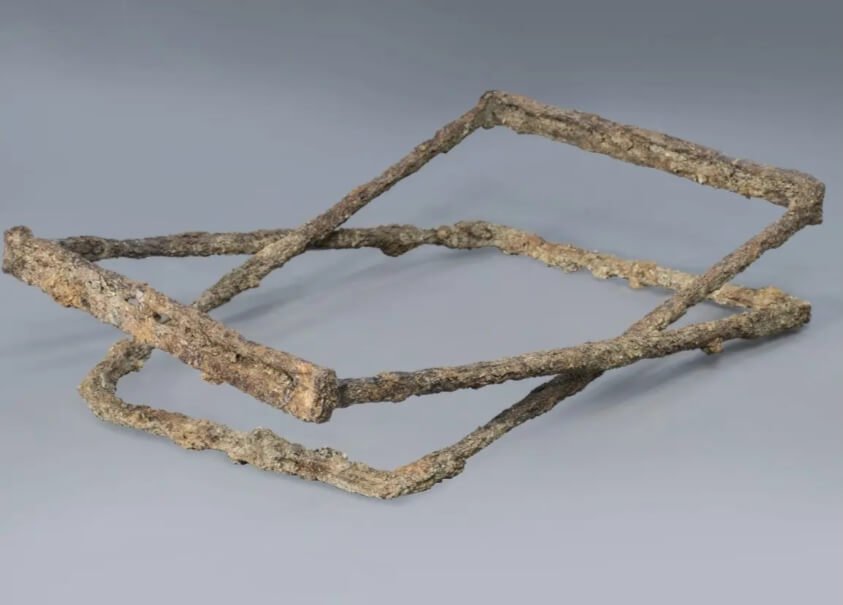In the quiet village of Endsee, nestled within the heart of Middle Franconia, Germany, archaeologists recently unearthed an extraordinary artifact that has unveiled a fascinating glimpse into the past. The remarkable discovery, made during excavations in 2022, is none other than an early medieval folding chair, crafted from iron, dating back to the 7th century AD. This precious find was deposited as a funerary offering in a burial site, shedding light on the intriguing customs and lifestyles of the era.
The chair's resting place was a grave that cradled the remains of a woman estimated to be between 40 and 50 years old. Alongside her skeletal remains, a treasure trove of relics was found. Among these were a delicate necklace adorned with small, multi-colored glass beads, two intricately designed brooches, an almandine disc brooch, a large millefiori bead, and a whorl—a testament to the craftsmanship and artistry of the time.
Notably, this woman was not alone in her journey to the afterlife. In proximity, another grave was discovered, this one belonging to a man. His final resting place was adorned with a lavish collection of weaponry, including a lance, shield, and spathe. These findings suggest a connection to the Franconian influence in the Main and Tauber regions during the 6th and 7th centuries, shedding light on the socio-cultural dynamics of the time.
After a meticulous restoration process, this ancient folding chair has now been unveiled to the public at the "Archaeology in Bavaria" conference. The chair itself is a testament to early medieval craftsmanship. It consists of two frames intricately connected with an axle pin and is embellished with brass non-ferrous metal inlays. Notably, narrow slots are present on the horizontal struts, which likely served as attachment points for a seat, presumably made from animal fur—a conclusion drawn from mineralized organic remains found on the chair.
Image Credit : Bayerisches Landesamt für Denkmalpflege
What makes this discovery truly exceptional is the rarity of folding chairs as grave goods in early medieval contexts. Such items were not common in burials, and their presence suggests that the individuals interred in these graves held a prominent position or occupied a higher social status within their communities. Astonishingly, this particular folding chair made from iron is among only six such examples discovered in Europe, out of a total of 29 early medieval graves containing folding chairs.
Professor Mathias Pfeil, the head of the Bavarian State Office for Monument Preservation, expressed his astonishment at the find. He stated, "The extremely rare discovery of an early medieval iron folding chair in 2022 was already a sensation, but the fact that such details have been preserved after remaining in the ground for over 1,400 years was a surprise." The chair's preservation is a testament to the meticulous care and reverence with which it was placed in the burial.
This remarkable artifact, which at first glance appears remarkably modern, holds immense cultural and historical significance. It provides a unique window into the burial practices and material culture of the early medieval period, offering invaluable insights into the lives and status of individuals who lived more than a millennium ago. As archaeologists continue to explore and excavate the past, discoveries like this folding chair continue to enrich our understanding of history, reminding us that even the seemingly mundane objects can tell extraordinary stories of our ancestors.








